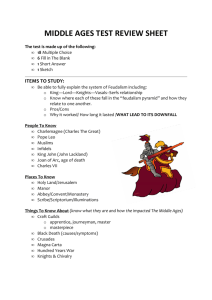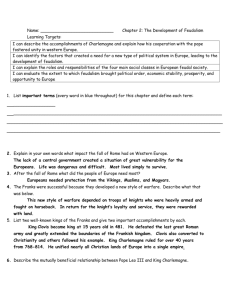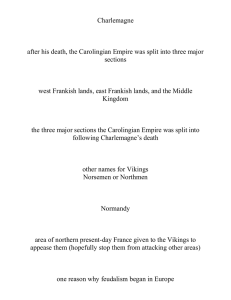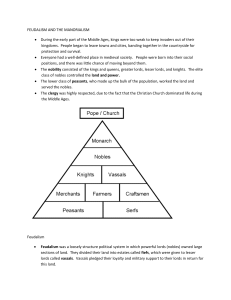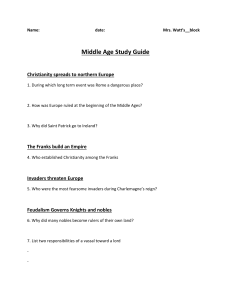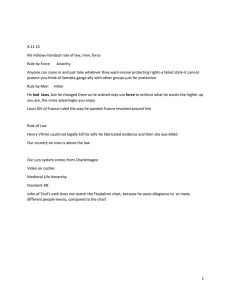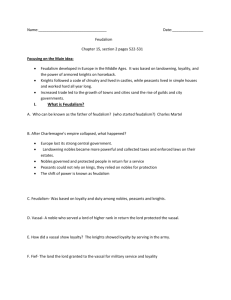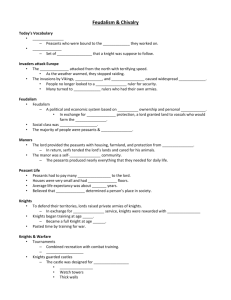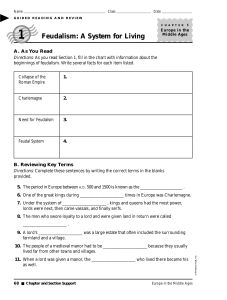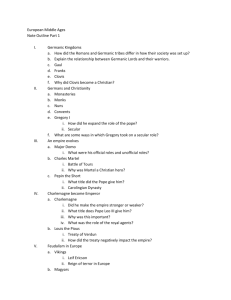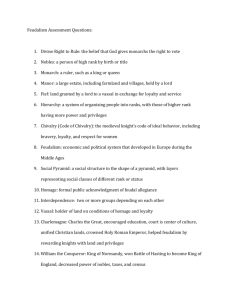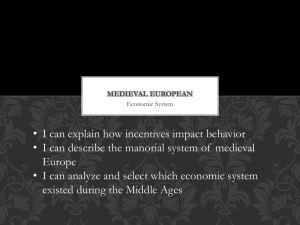Charlemagne Unit 3, SSWh 7A
advertisement
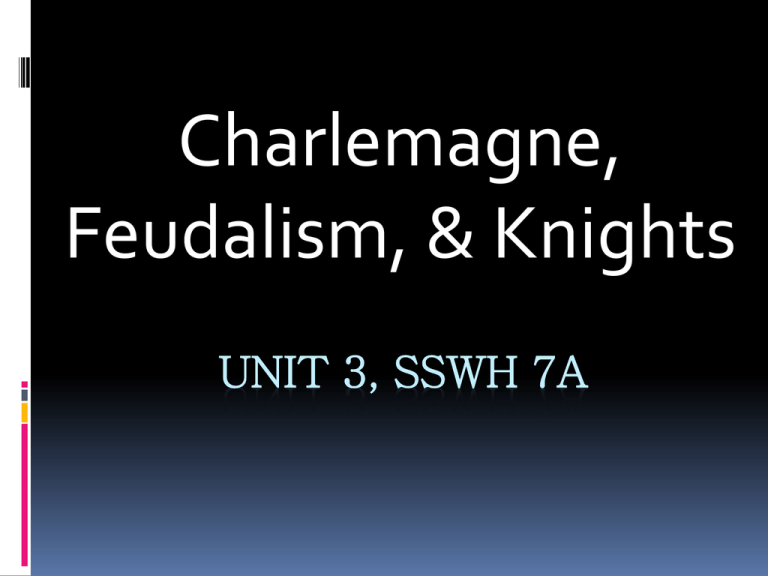
Charlemagne, Feudalism, & Knights UNIT 3, SSWH 7A What was everyday life like in Medieval Europe? SSWH 7 a Explain the manorial system and feudalism; include the status of peasants and feudal monarchies and the importance of Charlemagne. CHARLEMAGNE United western Europe under one king Built an empire greater than any since Rome Spread Christianity through conquests Crowned emperor by Pope Leo III, joining the church & govt. p.215-216 Continued Limited the authority of the nobles, used royal agents Empire divides upon his retirement (3 grandsons fight over it) – Treaty of Verdun splits up Feudalism: Emerged 850 – 950 AD A system of governing & landholding Feudalism depended on the control of land Lords (landowners) granted land (a fief) in exchange for protection by knight (a vassal) Feudalism shaped as a pyramid: king at the top, mostly wealthy/powerful vassals (nobles or bishops), then knights, & at the bottom peasants/serfs p.219 -224 Continued Feudalism estab 3 social classes Those who fought (nobles & knights), those who prayed (men & women of the church), & those who worked (peasants) Knights trained for 14 yrs. – served 3 things: landlord, Lord, and lady Manorial System – Lord’s Estate (economic arrangement) Based on obligations & rights between a lord & peasant/serf Lords provided housing, farmland, & protection Serf worked the lord’s land, cared for animals, & maintained the manor (they were not allowed to leave the manor) Continued Self-sufficient community: house, church, workshop, & mill Most lived to 35 & most didn’t travel more than 25 miles Peasants/serfs accepted lives because of the church teachings The Count 3: Name the 3 feudal classes 2: Name 2 characteristics of the manorial system 1: What is one major accomplishment of Charlemagne? Jot Down – Prepare to Share
